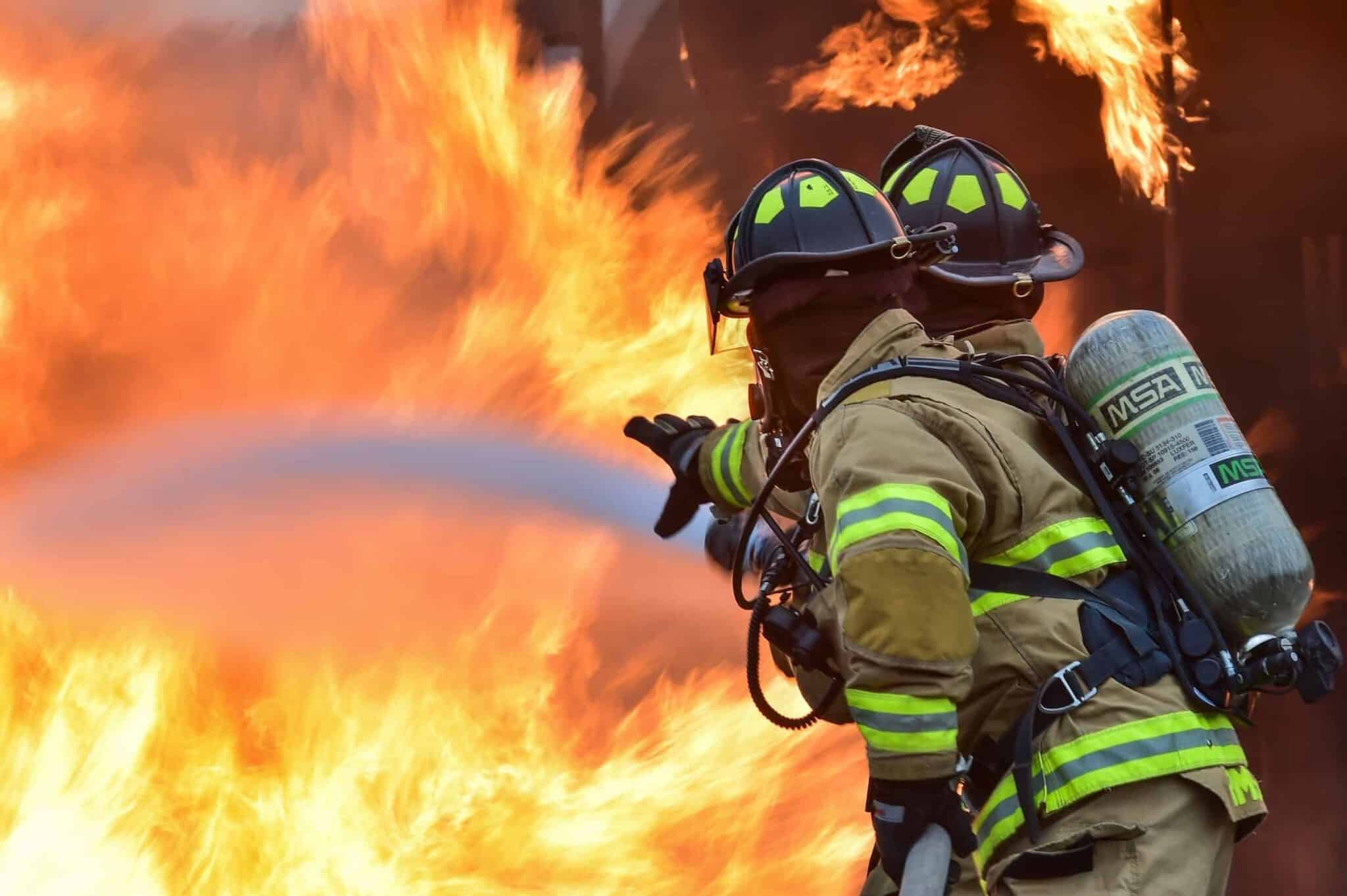
The Most Common Causes of House Fires and How to Prevent Them
Each year there are thousands of house fires in America. The National Fire Protection Agency puts the number at 350,000 house fires annually with more than 2,500 deaths. They happen most prevalently in the winter months. House fires can be devastating, and in many cases, deadly. Most house fires are, of course, accidental. But that doesn’t mean they aren’t preventable. There are plenty of things that we can do in the winter and year-round to keep ourselves safe. Here are 5 of the most common reasons for a house fire.

5 Most Common Reasons for a House Fire
There are many things in your home that can pose a fire hazard. However, if you keep these scenarios in mind you can stop those fires before they get started.

1. Cooking Fires
By far, the most common reason for a house fire is cooking. In fact, the NFPA states that 48% of house fires start in the kitchen. Pots and pans most often catch fire when the person using them leaves the room. If you have a gas stove, you need to be extra careful about having that open flame. Fires can also start from hot grease on a pan or in the oven.
Grease fires can happen quickly and can be difficult to put out. Remember that you should never put water on a grease fire to extinguish it. Every kitchen should have a fire extinguisher, but of course, we don’t live in a perfect world. If you don’t have access to an extinguisher when a grease fire happens in your kitchen, you need another plan.
One thing you can do is to cover the pan or pot with a lid and smother the fire. Another action you can take is to cover the fire in baking soda. Either of these methods will deprive the fire of oxygen and snuff it out.

2. Heating Sources
Portable heaters like space heaters and even baseboard heaters can cause fires just about anywhere in your home. This usually happens because a piece of fabric is too close to them, like a curtain or blanket. Heaters that require fuel can be particularly dangerous and should never be left unattended.
Make sure that you don’t leave a room where a space heater is operating, and always keep an extinguisher nearby. Before you power up your baseboard heaters this winter, make sure the house is safe. Rearrange furniture to get couches and blankets away from the wall. If your home has a furnace, make sure it’s inspected at least once every year. Keeping your heating equipment up-to-date is the most important fire prevention method for using them.
Take a look at this space heater infographic for some additional safety tips.

3. Electrical Equipment
In addition to your electric space heaters, other electrical equipment throughout your home can cause fires. Electric fires commonly start because of short circuits causing sparks that can ignite building materials. Another common cause is a circuit that becomes overloaded with electrical current, overheating the wires.
The best defense against electrical fires is to get rid of your old electrical equipment. Most plug-in machines come with a number of fire-prevention and safety features. Old equipment with frayed cords is particularly susceptible to short-circuiting.
If you live in an older home, be sure to get your wiring inspected by a professional electrician. You should never attempt to perform electrical maintenance yourself unless you are properly trained and have the correct tools.

4. Open Flame
There are several forms that open flames can take in your home that lead to house fires. One very common cause of house fires is from the open flame of a candle, from a stove, or from cigarette smoking. Having open flames like candles or cigarettes can be especially dangerous in the bedroom.
A burning candle or cigarette that’s still smoldering in an ashtray can ignite a fire on bedsheets very quickly. The best way to prevent an open flame from causing a fire is to keep it out of your home.
If you do smoke in your home, try your best not to do it in bed. The safest place to smoke in your home is above the sink with an ashtray nearby. If you can, just keep the cigarette smoking and candle burning out of your home altogether.
If you have a fireplace in your home, be sure to keep your Christmas tree as far away from it as possible. Also, at the end of the holiday season be sure you do not burn your Christmas tree in your fireplace.

5. Intentional
One cause of house fires we might not initially think of is the intentional setting of fires. Intentional fires are responsible for about 8% of all house fires. This can cover a wide array of cases including arson, but also curious children. Curious children are one of the many common reasons for a house fire.
If you have fire-starting materials at home like matches or lighters, keep them out of reach of children. Every year curious children play with matches or lighters and start house fires that cause massive property damage and even death.
The best thing you can do about this is to teach your children the importance of fire safety. There’s nothing wrong with curiosity, but children may not understand the consequences of their actions. Teach them about fire safety and prevention, but also about the bad things that can happen when a fire isn’t handled safely.

The Most Common Causes of House Fires
Did you read this list and think to yourself, “that sounds like my house”? Well, if you did, make sure you correct it! As the days get colder and we spend more time in our homes (and heating our homes), our chances for a housefire rise. Make sure that you and your family are familiar with these causes and how to avoid them. With that knowledge under your belt, you’ll have no problem making it safely to the new year!

